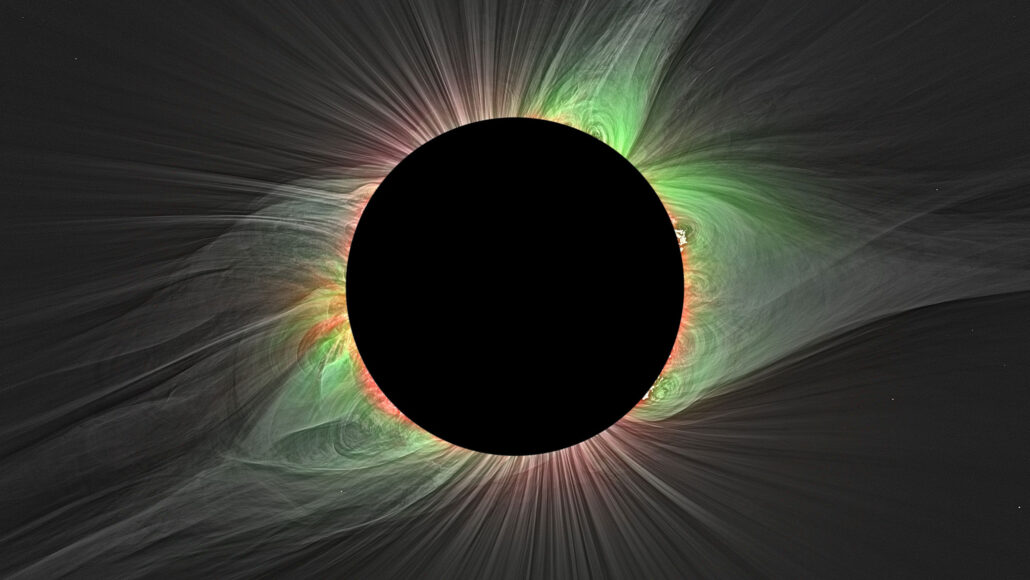Questions for ‘Get ready for the 2024 total solar eclipse’

The total solar eclipse in 2017 (photographed by scientists with a special filter) was great. This year’s eclipse is expected to be even more spectacular.
Image produced by M. Druckmuller and published in Habbal et al. 2021